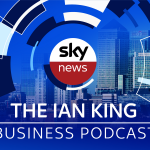A surge in working from home and a rise in cancellations for hairdressers and restaurants took place last month as fears over the Omicron variant and Plan B rules took hold, new data shows.
Figures from the Office for National Statistics (ONS) showed 21% of working adults said they had worked exclusively from home, when surveyed over the the period from 15 December to 3 January, .
That was an increase from 14% in the previous reporting period, the ONS said.
It was part of a slew of economic indicators published by the statistics agency which also showed an increase in cancellations was reported by 16% of businesses.
These were worst for “other services”, a category which includes hairdressers and other beauty treatments, where 50% saw an increase in customers cancelling, followed by the hotel and restaurant sector, where the figure was 45%.
Latest data follows the introduction of Plan B restrictions to try to tackle the spread of the Omicron variant – including guidance for office-based staff to work from home if possible.
That has had the knock-on effect of holding back the recovery in city centre footfall, hurting shops, pubs and bars who had been hoping for a much-needed bumper Christmas period.
Next sees prices rising by up to 6% as wage and freight costs soar
Greggs affected by COVID-19: Consumer caution over Omicron takes a bite out of sales
Sales of new electric cars ‘only bright spark’ for UK industry in flat 2021
Consumer caution about catching or spreading the virus has also been cited as likely to have dampened some economic activity.
Also hurting businesses have been worker absences due to catching COVID-19 – with latest data showing one in 15 in England infected.
Some employers in sectors from lorry driving and food processing to warehouse workers and restaurants had already been facing difficulties in recruitment, partly attributed to Brexit as well as the pandemic.
The ONS found that, last month, 15% of firms reported a shortage of workers – a number which has remained stable since late October.
That was highest for hotels and restaurants, at 37%.
The ONS said 65% of these firms reported employees working increased hours because of the shortages.
Separately, a new survey of businesses by the Bank of England conducted last month found near-term expectations for sales, employment and investment had deteriorated following the emergence of the Omicron variant.
It also found that the proportion of workers on premises dropped to 66% in December, down from 71% the previous month.
Meanwhile, 86% of firms reported that they were finding it harder than normal to recruit new employees.
Elsewhere, the closely-watched purchasing managers’ index (PMI) survey for December showed Britain’s services sector saw its slowest growth since February as Omicron took its toll on the travel, leisure and hospitality sectors.






















